
Mapping projects related to mass atrocities and human rights violations are prevalent across the globe. Despite their often well-intentioned origins, there has been minimal practical research and subsequent output focused on what constitutes effective mapping. Furthermore, there is a lack of guidance on how to balance the pursuit of justice with the need to protect victims and affected communities. This raised an essential question: where, when and under what circumstances should mapping of mass graves be avoided or kept secret so that protection is not jeopardised?
In 2022, Professor Melanie Klinkner and Dr Ellie Smith secured Leverhulme funding to address this critical question. As of August 30th, 2024, the project’s output has been completed and is now available as an open-access resource for global use. The output is accessible both online and in a physical format, consisting of a comprehensive workbook accompanied by a set of removable tools designed to guide practitioners through the mapping process. These tools include:
- Mapping Process Flowchart: The flowchart illustrates the life cycle of a mass grave, highlighting the key stages and considerations at each step, all guided by the protection of rights.
- Mapping Decision Tree: Accompanying the flowchart, the decision tree highlights concerns and necessary actions that must be addressed before progressing with mapping at each stage.
- Risk Register: This element assists in decision-making processes by enabling logging and evaluations of risks and subsequent mitigation strategies.
Upon completion of the research Dr Ellie Smith outlines that:
“Mapping mass graves in an open-source format has the potential to provide longer-term protection of the site, as well as a means of countering revisionism, but is not without risks. The aim of our MaGMap tools is to enable anyone involved in mass grave mapping to do so in a way that is safe for survivors, witnesses and the families of victims, and preserves the integrity of the site as a crime scene”.
For Professor Melanie Klinkner the finalisation of these resources means that:
“Theoretical, transferable foundations have been laid to inform continued research and current mapping of atrocity practices. In fact, much of what we have learned during the course of the project now guides our own approach to building a regularised global mass grave map. This is significant: it will enable us to fully appraise the scale and magnitude of mass graves across the world in a rights-compliant and safe manner”.
Dr Ellie Smith will be presenting the findings of MaGMap this week at the European Society of International Law Conference in Lithuania.
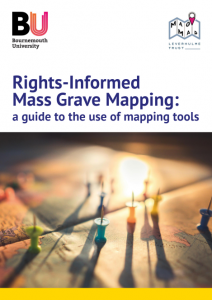
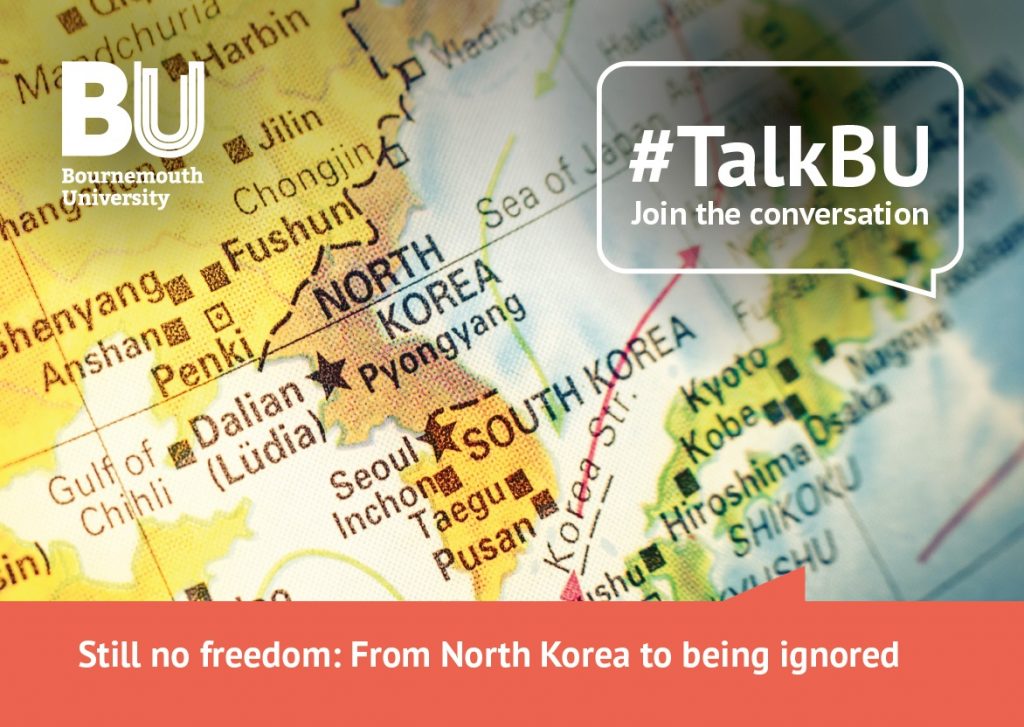
 #TalkBU is a monthly lunchtime seminar on Talbot Campus, open to all students and staff at Bournemouth University and free to attend. Come along to learn, discuss and engage in a 20-30 minute presentation by an academic or guest speaker talking about their research and findings, with a Q&A to finish.
#TalkBU is a monthly lunchtime seminar on Talbot Campus, open to all students and staff at Bournemouth University and free to attend. Come along to learn, discuss and engage in a 20-30 minute presentation by an academic or guest speaker talking about their research and findings, with a Q&A to finish. 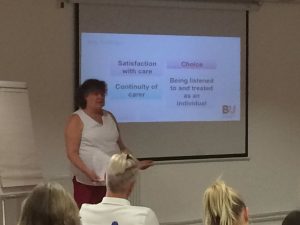 On 26th September the branch of the RCM in Southampton held a study day dedicated to considering human rights concerns in maternity care. It was attended by over 50 practitioners from across the region. Topics covered included a workshop by the human rights in maternity charity, Birthrights, and speakers from Barnados and Stop the Traffik. These latter presenters provided thought provoking, and somewhat harrowing, evidence for the need for awareness of sexual exploitation in young people, and trafficking of humans in our areas of practice. In addition Dr Jenny Hall (pictured right) from CEL and Jillian Ireland, visiting researcher in CMMPH, discussed the human rights of women with disability, based on current research partially funded by Birthrights, undertaken with colleagues Professor Vanora Hundley and Dr Bethan Collins from Liverpool University.
On 26th September the branch of the RCM in Southampton held a study day dedicated to considering human rights concerns in maternity care. It was attended by over 50 practitioners from across the region. Topics covered included a workshop by the human rights in maternity charity, Birthrights, and speakers from Barnados and Stop the Traffik. These latter presenters provided thought provoking, and somewhat harrowing, evidence for the need for awareness of sexual exploitation in young people, and trafficking of humans in our areas of practice. In addition Dr Jenny Hall (pictured right) from CEL and Jillian Ireland, visiting researcher in CMMPH, discussed the human rights of women with disability, based on current research partially funded by Birthrights, undertaken with colleagues Professor Vanora Hundley and Dr Bethan Collins from Liverpool University.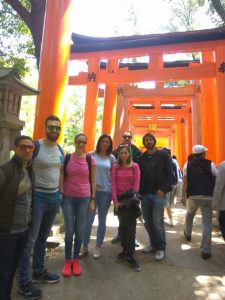

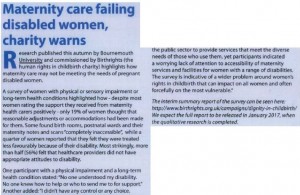 The study
The study 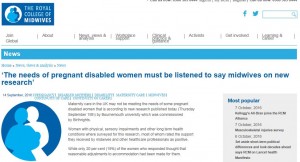















 New CMWH paper on maternity care
New CMWH paper on maternity care From Sustainable Research to Sustainable Research Lives: Reflections from the SPROUT Network Event
From Sustainable Research to Sustainable Research Lives: Reflections from the SPROUT Network Event REF Code of Practice consultation is open!
REF Code of Practice consultation is open! ECR Funding Open Call: Research Culture & Community Grant – Apply now
ECR Funding Open Call: Research Culture & Community Grant – Apply now ECR Funding Open Call: Research Culture & Community Grant – Application Deadline Friday 12 December
ECR Funding Open Call: Research Culture & Community Grant – Application Deadline Friday 12 December MSCA Postdoctoral Fellowships 2025 Call
MSCA Postdoctoral Fellowships 2025 Call ERC Advanced Grant 2025 Webinar
ERC Advanced Grant 2025 Webinar Update on UKRO services
Update on UKRO services European research project exploring use of ‘virtual twins’ to better manage metabolic associated fatty liver disease
European research project exploring use of ‘virtual twins’ to better manage metabolic associated fatty liver disease